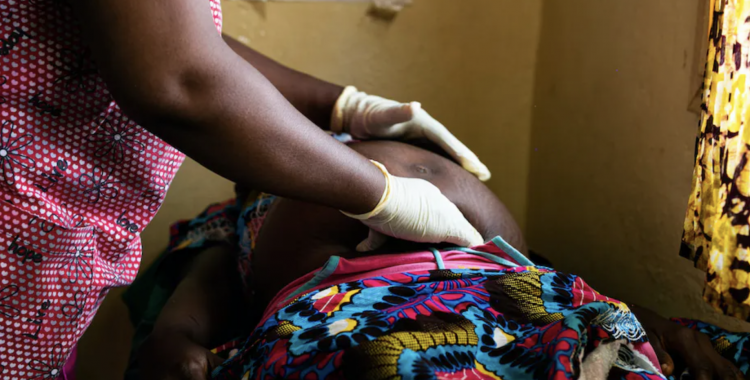In an interview with Lusa, the municipal secretary of Social Assistance and Development of São Paulo, Carlos Bezerra Júnior, reported that the number of Angolans, especially pregnant women, who emigrate to the city has increased in the last two years, a trend that is expected to repeat in 2024 .
"This happens due to the poor conditions of the health service, the difficulty in accessing health care in their country of origin, so that they can have their babies here, in the city of São Paulo, and the guarantee of access not only to the service health care for the mother, but also the guarantee of daycare for her children and social services as a whole", explained Bezerra Júnior.
The Special Reception Center (CAE) for Pregnant and Postpartum Women - Amparo Maternal, an institution that welcomes 91 pregnant and postpartum women in vulnerable situations under an agreement with the City of São Paulo, provides free temporary shelter and food. Of these women welcomed, almost a third (28 women) are Angolan, including one child.
The immigrants said they traveled to Brazil pregnant, without contacts or family in the country, and also with little money, because they were afraid of losing their babies, as many had traumatic experiences in previous pregnancies in Angola.
Lorena Mankulu Zozinia, 38 years old, who lived in Luanda, arrived in Brazil when she was nine months pregnant and said that she had two fibroids during her pregnancy and a doctor advised her to travel to Brazil, as her health and the life of the baby were at risk.
"I traveled nine months pregnant because the pregnancy wasn't good. I've already lost twin babies because of the hospital because [in Angola] the hospital is bad. The doctor made me a role [for the baby] to be born outside the country because he had myoma (...) She told me to go to Brazil because they treat [pregnant women] very well, if I stayed I could die", explained the Angolan.
Upon landing in Brazil at night, she tried to find a hotel that had been recommended to her, but which she was unable to find, and ended up sleeping in an evangelical church. She was then taken to a City Hall service center.
During the first treatment she had a bleed and was taken to the hospital. Her daughter was born in Brazil ten days later.
The fear of losing her child was also the main reason that led Beatriz Sebastião Ventura Diogo, 45, to leave Luanda when she was seven months pregnant and travel to São Paulo, leaving her husband and family behind. She has been in the South American country for a year and two months.
"I didn't have anywhere to stay [in Brazil], I really didn't and I came because I was at risk, as I said, I was afraid of losing my baby. If it weren't for him I wouldn't be here because I'm very scared, I couldn't travel alone," he explained.
The Angolan woman said that her husband sought information about the health service in the South American country when they discovered that she was pregnant again, as they had lost a baby in Angola at seven months of pregnancy, a fact that she believes happened due to lack of adequate medical care.
"As I was pregnant, I already lost that pregnancy, out of nowhere I was bleeding and the hospital [in Angola] took a long time to treat me. It's really fear that brought me here to Brazil to have my baby. And my baby she's healthy, thank God, because there [in Angola] they were saying that it could be a cesarean [birth] and I was very scared", added Nvunzi Albertina Pedro Panzo.
Angolan Nvunzi Albertina Pedro Panzo, 32 years old, who has been in Brazil for 6 months, said that although her pregnancy was not at risk, she decided to emigrate due to the economic and social situation in Angola. Excited, she said that she left her family in the country and doesn't know when she will be able to meet them again.
"I traveled pregnant. I came here pregnant, I left my whole family, my parents, my husband, everyone stayed. I came alone. When I became pregnant, I actually didn't want to go through what others went through. I witnessed several realities that they made me sad [in Angola]. So, as it is my first child, I decided not to have my baby there. I preferred to come [to Brazil] because there is already a developed health history here, different from Angola", he concluded.
All the Angolan women that Lusa spoke to said that they intend to live in Brazil and take their family. For now, they are in the shelter, but some have taken professional courses so that, when their babies can stay in daycare, they can leave the shelter and work.







